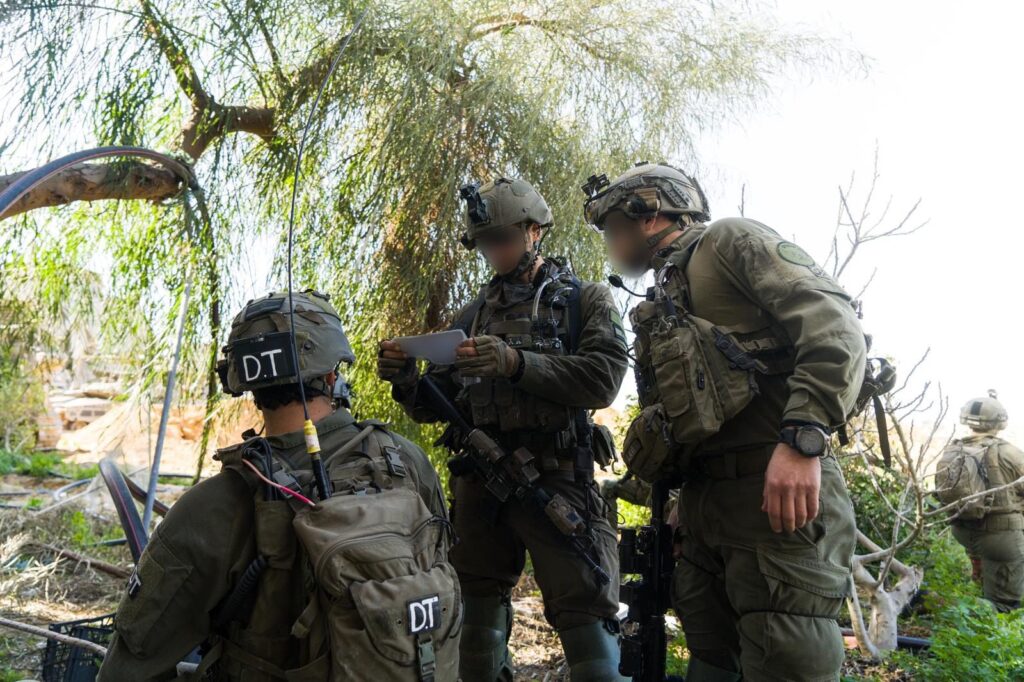Australia/Israel Review
Scribblings: A “better way”?
Apr 22, 2024 | Tzvi Fleischer

“There must be a better way!”
This seems to be the cry of many otherwise reasonable and well-meaning people when they look at the devastation in Gaza wrought by six months of war with Hamas. (We are not talking here about the dedicated haters determined to demonise Israel no matter what.)
Israel has a right to self-defence, I can hear them say, but surely Hamas could be defeated without such terrible collateral damage to Gaza’s civilian residents and civilian infrastructure. Such devastation surely amounts to “collective punishment” of Gazans, when only Hamas should be targeted.
But is it true that there’s a “better way” to wage war on Hamas? Well, non-Israeli military leaders with experience in similar situations who are the best placed to know – agree there is not.
Let’s start with Australia’s own most famous strategic thinker, David Kilcullen, who became a leading intellectual light of the Australian Army, a strategic advisor to the US-led coalition forces in both Iraq and Afghanistan, and is now a leading academic expert on insurgency and counterinsurgency.
Kilcullen wrote in the Australian on March 26 regarding Gaza:
The notion of a clean, surgical, stand-off campaign, using precision strikes and small-team raids to destroy Hamas without damaging Gaza or harming civilians – as attractive as it sounds in theory – is simply not practicable, as our own recent history in places such as Mosul shows… Reality is reality: the only way for Israel to avoid the kind of campaign that is happening now would have been not to go in at all, leaving Hamas in control of Gaza…
Kilcullen’s former boss in Iraq, US General David Petraeus, who later served as head of the CIA, clearly agrees, even if he does not say so quite as explicitly. He told an interviewer from the Times of Israel (March 15), “Hamas is irreconcilable… They have to be destroyed, just as we had to destroy the core al Qaeda and how we helped the Iraqi security forces and the Syrian Democratic Forces destroy the Islamic State.”
He then went on to say that Gaza is “more difficult and more challenging than anything that we ever did”:
This is the most fiendishly difficult context for urban operations since 1945 at least.
You have 350 miles of very well-developed tunnels, subterranean infrastructure, factories, headquarters, all these different facilities underground. You have high rises that have to be cleared. You’ve got to clear every building, every floor, every room, every cellar, every tunnel… You have an enemy who doesn’t wear a uniform in most cases… who uses civilians as human shields, still holds over 130 hostages, which obviously complicates a very complex situation.
Then there is John Spencer, a former senior US Army officer who is now the head of Urban Warfare at the US military academy at West Point, making him one of the world’s top experts on such warfare.
Spencer criticises (Newsweek, March 25) “analysts who should know better” who, he says, “are still engaging in condemnation of the IDF based on the level of destruction that’s still occurred – destruction that is unavoidable against an enemy that embeds in a vast tunnel system under civilian sites in dense urban terrain.”
He insists the reality is that the IDF is not being careless of Gazan lives but the opposite:
In my long career studying and advising on urban warfare for the US military, I’ve never known an army to take such measures to attend to the enemy’s civilian population, especially while simultaneously combating the enemy in the very same buildings.
Another example is Col. Richard Kemp, a long-serving British Army officer who commanded all British forces, together with some American forces, during a major operation in Afghanistan in 2003. He also played a senior intelligence role in Iraq.
Responding to critics of the IDF’s actions in Gaza, he wrote in January:
I have not yet heard one single realistic proposal for an alternative way of operating that would reduce civilian harm while still achieving the necessary objectives. That tells me that the IDF has no choice but to prosecute this conflict along current lines, despite the terrible loss of civilian life…
[The IDF’s] daunting combination of concurrent and conflicting challenges, coupled with the fact that Hamas systematically uses Gazans as human shields, and operates within and beneath civilian infrastructure, means that it is literally not possible to achieve the objectives of defeating Hamas and rescuing the hostages without the tragic consequence of civilian casualties and the regrettable destruction of civilian property from both ground and air. No army in the world would be able to do so, no matter what tactics they employed.
Those who accept Israel has a right to self-defence but imagine there “must be a better way” need to recognise, as Kilcullen urged, that “reality is reality” – no “better way” exists.
Concern about the welfare of suffering Gazans is a moral imperative. However, if your concern about them causes you to say Israel must be prevented from defeating Hamas, then let’s be clear: you are saying Hamas has created a situation where, because it illegally uses Gazans as human shields, Israel has no right to self-defence against it. You are saying Israel just has to accept that nothing effective can be done about the Hamas threat in the wake of the mass murder, torture, rape and abductions of October 7, as well as Hamas’ determination to repeat that attack “again and again”.






